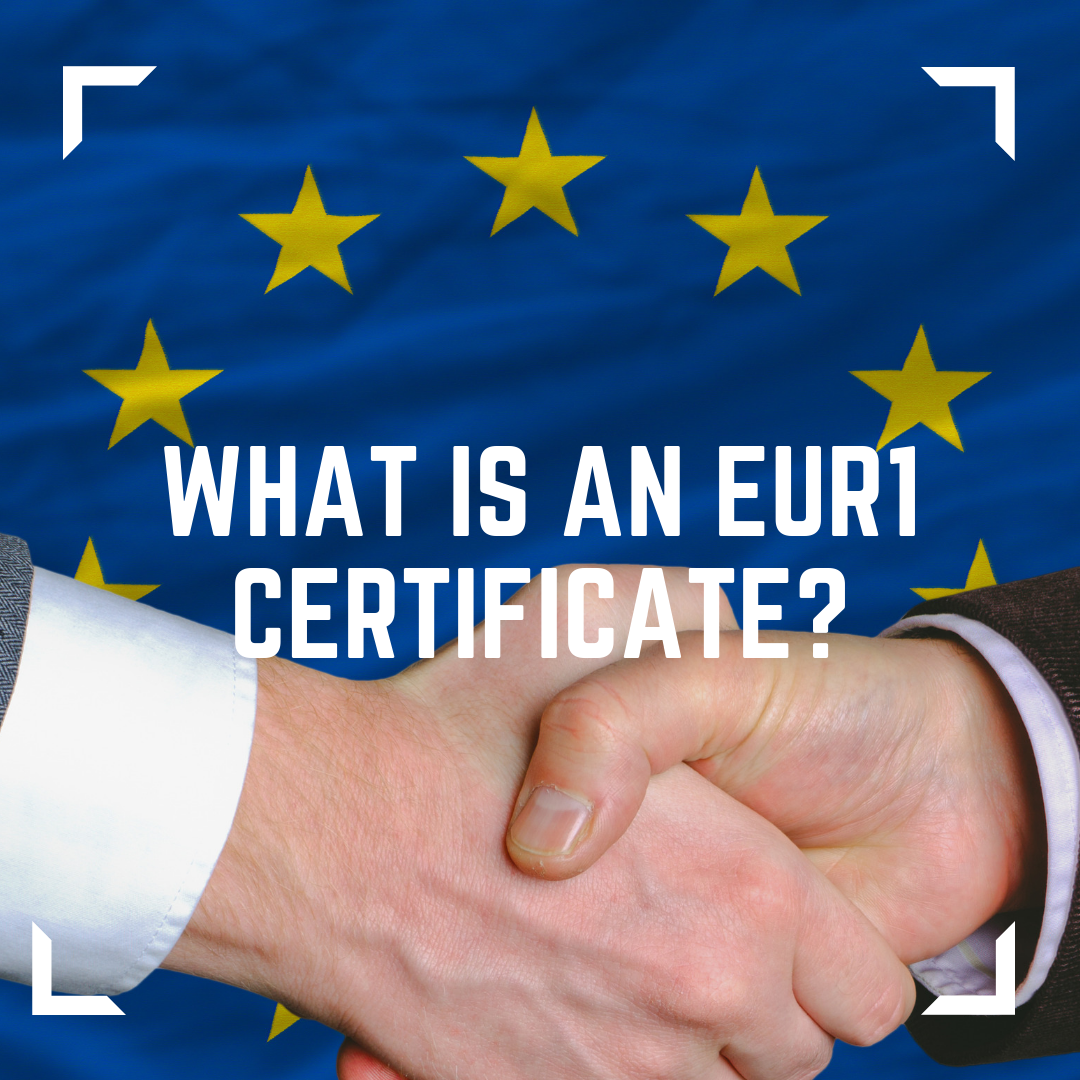What is an EUR1 certificate?
If you’re considering exporting or importing from/to the Cyprus with a country that has a trade agreement with the EU, you need to know about the EUR1. The EUR1 is a movement certificate (a certificate of origin) that you need to claim a preferential rate of duty (usually zero) when moving goods between the EU and the countries on the agreement list.
Why do I need an EUR1 Certificate?
The EUR1 forms part of the required customs documentation. It must be presented to the customs office at the receiving country to benefit from a reduced rate of duty. Failure to produce will result in a bill for the normal customs tariff.
What sort of goods are covered?
To qualify the goods have to originate in the Cyprus or the EU or have been manufactured in a country with a trade agreement with the EU. You may be required to provide proof of this such as documentation relating to the manufacturing of the goods and the origin of materials.
Which countries have a trade agreement with the EU?
The countries with a current trade agreement with the EU include Albania, Algeria, Bosnia/Herzegovina, Ceuta and Melilla, Chile, Columbia, Egypt, Faroe Islands, Honduras, Iceland, Israel, Jordan, Lebanon, Liechtenstein, Macedonia, Mexico, Montenegro, Morocco, Nicaragua, Norway, Panama, Peru, Serbia, South Africa, Switzerland, Syria, Tunisia, Turkey, Ukraine, West Bank/Gaza Strip.
How do I get an EUR1 Certificate?
You can obtain an EUR1 certificate from the Chamber of Commerce. For imports your supplier should obtain the EUR1 from the country’s customs authority.
You’ll need to present supporting documents with your EUR1 application. These include a commercial invoice and evidence of the information given on the form – a packing list or shipping document, for example.

